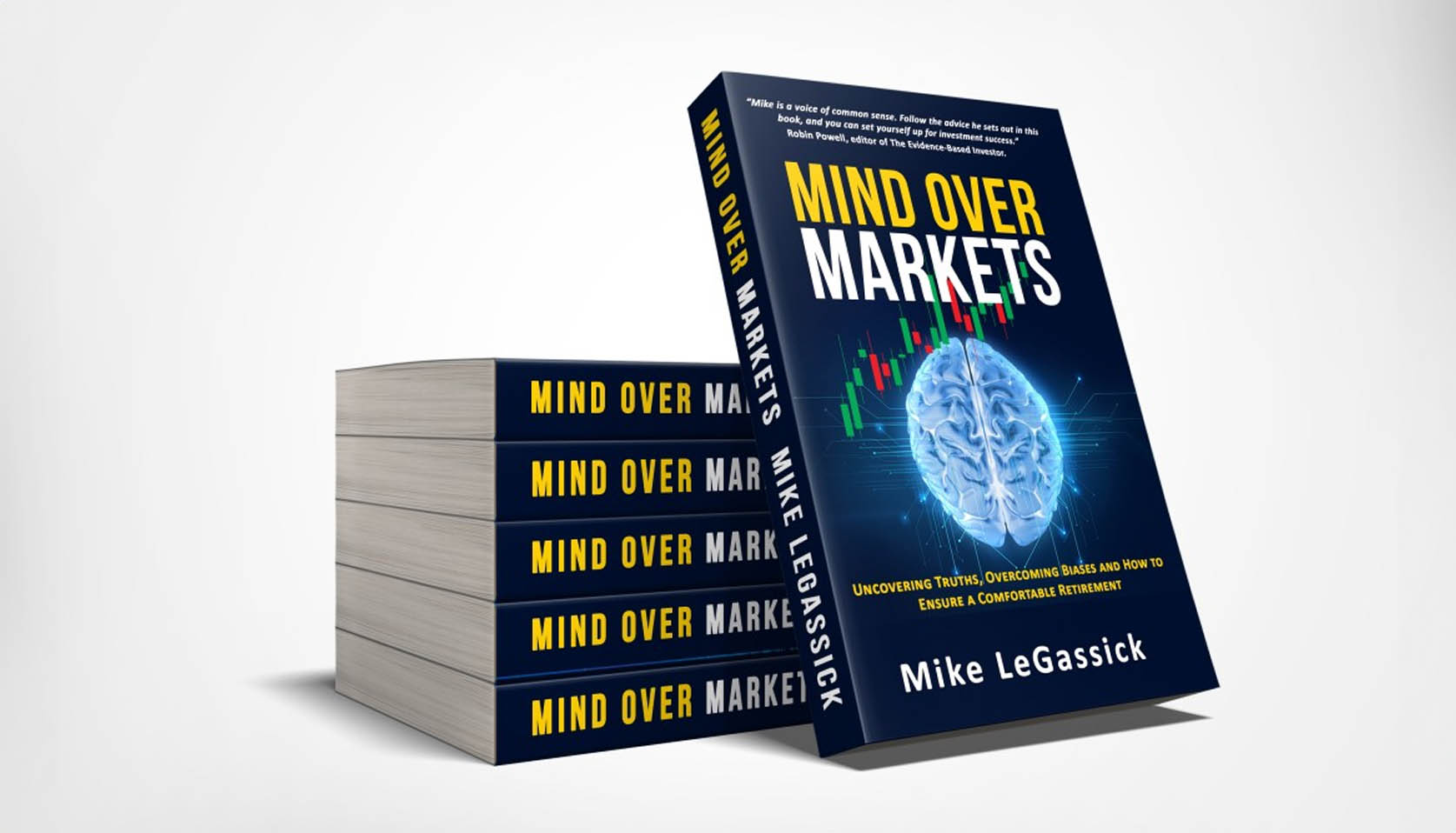‘Mind Over Markets’ – a Mike LeGassick book
A book by Mike LeGassick…

“My book, Mind Over Markets, focuses on investor behaviour, a subject I have delved into for over 20 years.
Studying the psychology behind investor actions and the drivers of human decision makinghas enhanced conversations with clients by helping them recognise their personal biases.
Understanding why investors behave in certain ways often prevents them from self-sabotaging their own financial plans.
In the book, I have strived to eliminate financial jargon, explaining concepts in plain English through relatable stories and real-world analogies.
I believe storytelling more effectively conveys the nuances of investor behaviour than traditional textbook explanations.
For example, the stock market can seem daunting but, in reality, it represents ownership of small pieces of some of the most innovative and well-funded companies on the planet – companies people in the developed world use daily. When framed this way, clients are more open to investing, because it becomes relatable.
Walking down Oxford Street, we are surrounded by the stock market, with companies selling real products to real people globally, 24 hours a day. This perspective transforms the stock market from a frightening concept into a sensible way to increase capital over the long term for patient investors with good temperaments.
I tell my clients there are only two things they can control: the fees they pay to have their money invested and their investor behaviour, particularly how they react to media and news headlines. Financial news is rarely presented with context, as its primary purpose is to grab viewers’ attention.
Many clients tend to make poor decisions at the wrong times for the wrong reasons, often due to a lack of education and understanding of historical market trends.
Former US president Harry Truman famously said: “The only thing new in the world is the history you do not know.” This is why understanding the history of markets is crucial, especially for first-time investors.
Most newcomers arrive with a suitcase full of myths, misconceptions and misunderstandings. It is imperative to debunk these so clients can make fully informed choices.
One of the first chapters in the book, The Evolutionary Pull of Bad News, explains why humans react to news as they do. This behaviour is ingrained in our DNA and, like many other investor biases, the first step in addressing them is learning to recognise them, so we do not act on them impulsively, which might lead to regret.
One of the biggest mistakes investors make is confusing volatility with the permanent loss of capital. These are two very different things.
I never ask a client to complete a risk assessment questionnaire without first ascertaining their level of knowledge about investing. It stands to reason that, if a client completes a risk questionnaire based on a lack of understanding, they will likely respond cautiously, which could lead to suboptimal outcomes in the future.
Research has shown humans feel the prospect of loss two to three times more intensely than the prospect of gain. This is another reason why uneducated investors often err too much on the side of caution, purely through a lack of understanding.”
About the author…

Mike LeGassick is a seasoned Behavioural Investment and Life Planning Advisor and a Director of Manning and Company Independent Financial Advisers in the UK. With over three decades of experience, he has specialised in developing clear, jargon-free financial plans tailored to his clients’ needs.
Recognised for his expertise, Mike has been featured in the Parliamentary Review where he contributes to political commentary alongside top journalists, enriched with insights from Secretaries of State, Ministers, and MPs. He is also a member of the Leaders of Great Britain, a membership organisation dedicated to connecting leaders both in-person and online. Members range from CEOs of major corporations to pioneering founders steering innovative startups.
Mike is a specialist in investor behaviour, helping clients become better investors by understanding the psychological factors that influence their decisions, ultimately guiding them to achieve optimal investment outcomes.







